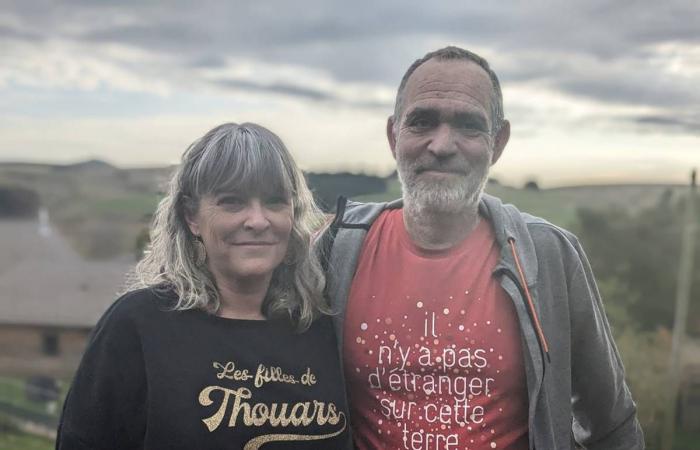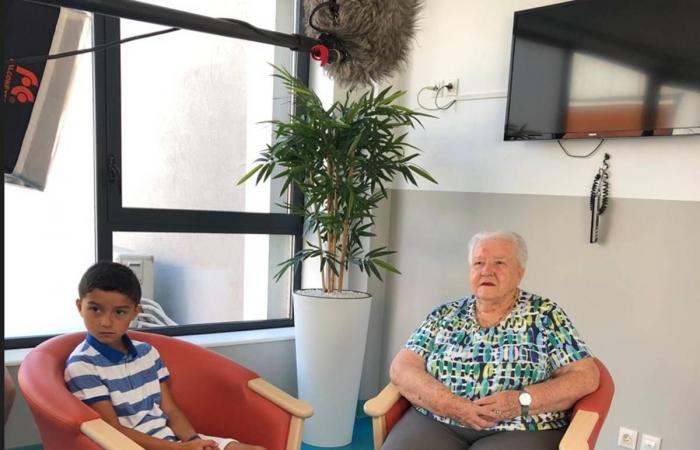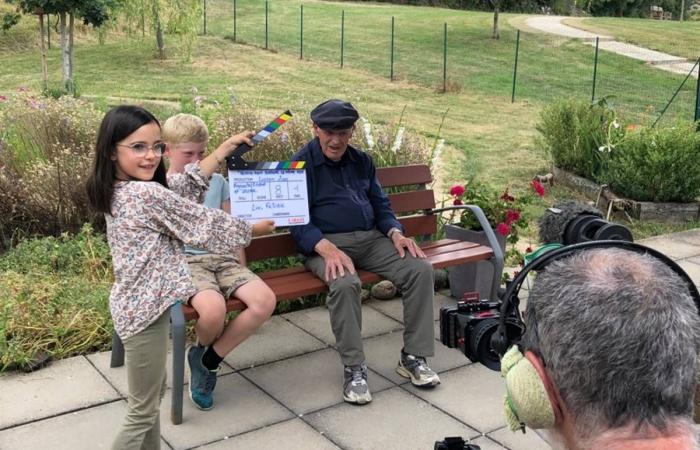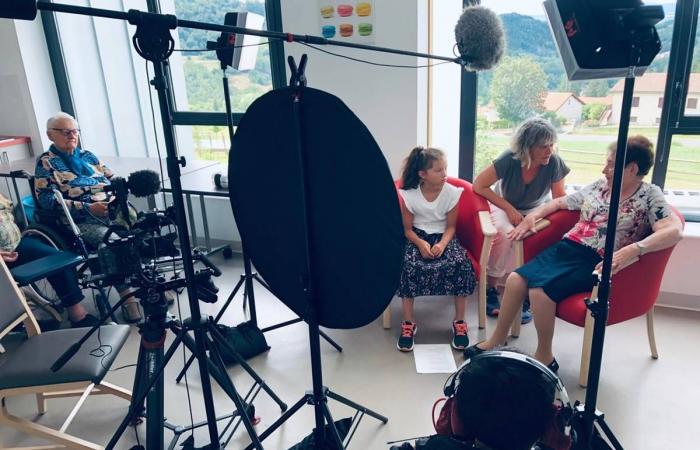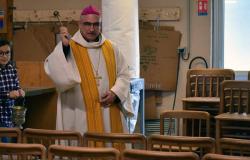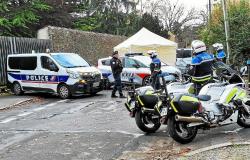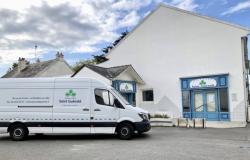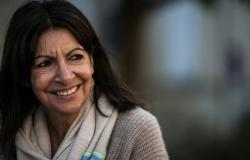Frédérique and Olivier Hespel have just made a documentary which traces the exchanges between two generations: When we would be the same age.
It is in the heart of the village of Estables that Frédérique and Olivier Hespel chose to settle six years ago. A real life choice for this Parisian couple – perhaps more so: a commitment. As evidence When we were the same agean intergenerational documentary already broadcast at the Grenette cinema in Yssingeaux, at Monastier-sur-Gazeille and at L'Échappée in Saint-Julien-Chapteuil last weekend.
Filmed during the summer of 2023 as part of the Drac Cultural Summers, this 50-minute documentary takes place at the Les terrasses de la Gazeille nursing home, in collaboration with the L'île ô jeux leisure center in Monastier-sur- Gazeille. It features ten children, aged 7 to 13, and ten residents aged 80 to 94 who ask each other about their childhood, then reflect together on the childhood of tomorrow. The images show memories of school, the Second World War, cold and snow, the arrival of television, the telephone… Without forgetting dreams of flying cars and concerns about global warming.
A quest for meaning
“How does the past inhabit the present? It’s a question that drives us and which runs through all our work,” observes Olivier Hespel before adding: “the children were challenged by the daily life of the elders: suddenly, they realize! “. Born in Paris, trained at the National Higher Institute of Performing Arts (Insas) in Brussels, he works between filmmaking, sound recording for feature-length fiction and documentaries, and teaching cinema. He has collaborated, among others, with the filmmaker Costa-Gavras, the documentary filmmaker Claire Simon, the filmmaker Nicolas Philibert (the director of To be and to have), the writer, film director Mehdi Charef, the Franco-Algerian director and producer Rachid Bouchareb (Natives)… Olivier Hespel won a César and a Magritte (Belgium). He notably directed a feature-length documentary Selor even a short film But where have you gone, Marguerite?to name just a few.“When we were the same age” a documentary
When we were the same ageit was his wife, Frédérique, who had the idea. What excites her the most? The links created during filming between generations. Like little Nina, “adopted” by Andréa, 95, whom she returned to visit at the nursing home. “Following the filming, many children told us that they had approached their grandparents in order to ask them in turn about their childhood, even though they had never had the idea until now,” remarks Frédérique Hespel. Then, to add after a silence: “we left Paris and the film sets to come and work here, to do what we want to do, as we want to do it, with this idea of transmitting our passion and to prove to people here that it is possible. You can dream of being a director or a writer, you can do these jobs in this area.”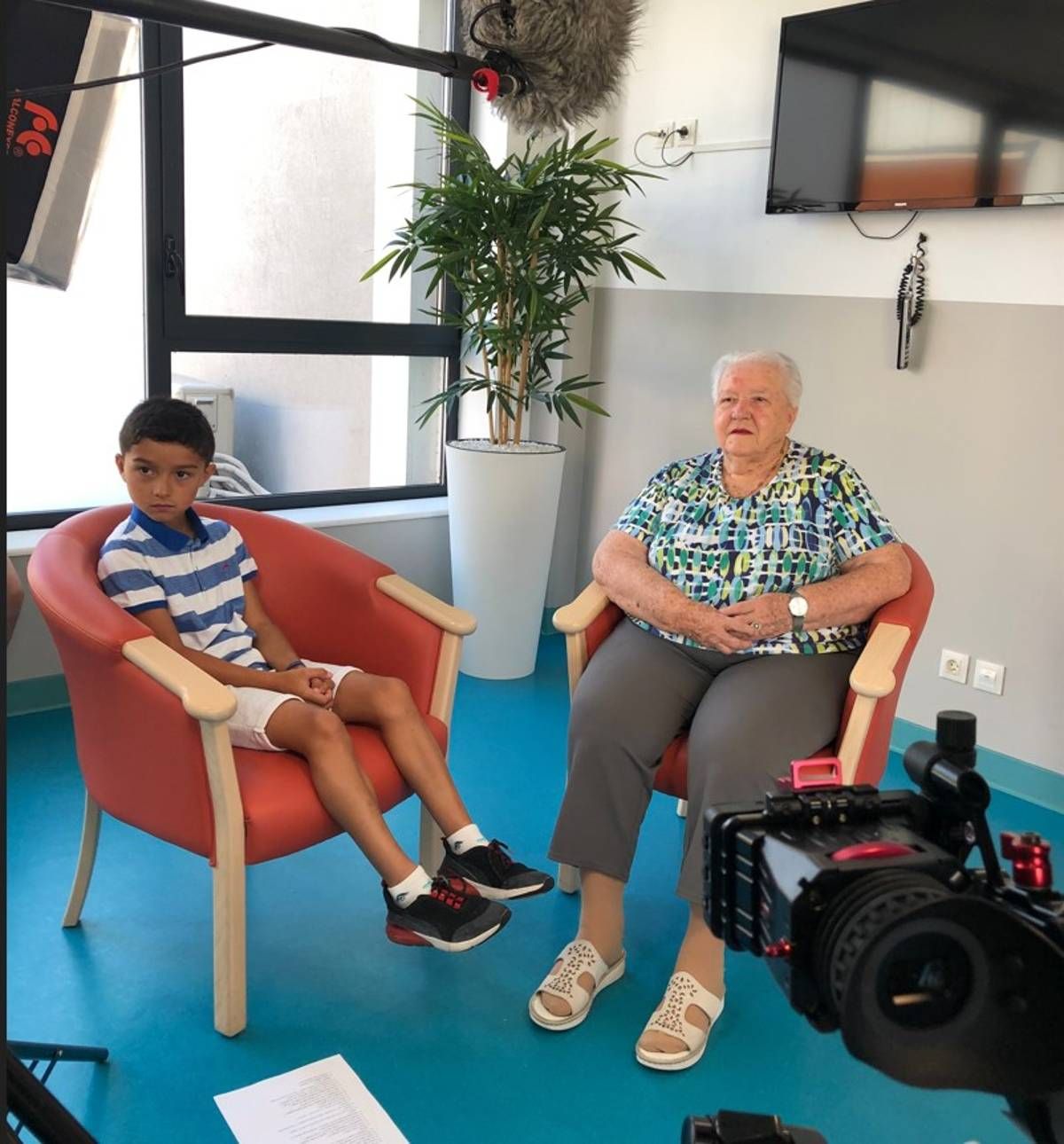 Being able to exchange between generations allows a different perspective of those around you
Being able to exchange between generations allows a different perspective of those around you
Receive our leisure newsletter by email and find ideas for outings and activities in your region.
They fell in love with Les Estables, which could very well have been limited to a holiday for a few days in winter. As a child, Frédérique Hespel skied on the slopes of Mézenc, she who grew up in Touraine, lived in Benin, Paris and Brussels. When they come across a classified ad for a house for sale, the idea of changing their life comes up on a whim; that was all it took to leave Paris in three months. “It was obvious to live here,” they say together. “Of course, we cut ourselves off from meetings, events, Parisian evenings, we are far from all that… But we have the impression that we are doing things that have much more meaning.”
“These are the new poor and they are made by the French administration”: in Haute-Loire, Secours catholique is mobilizing in the face of poverty
« What a movie When we were the same ageit's not just about making a film, it's also about encouraging people who go to see it to talk as a family. We transmit this idea that communication between generations which seems self-evident, is not so self-evident! », remarks Olivier Hespel. And Frédérique adds: “Marcelle, a resident, tells a child that she cannot understand, because there has been such progress between her childhood and hers that it is incomprehensible for the child to understand what she lived. And I quite agree.”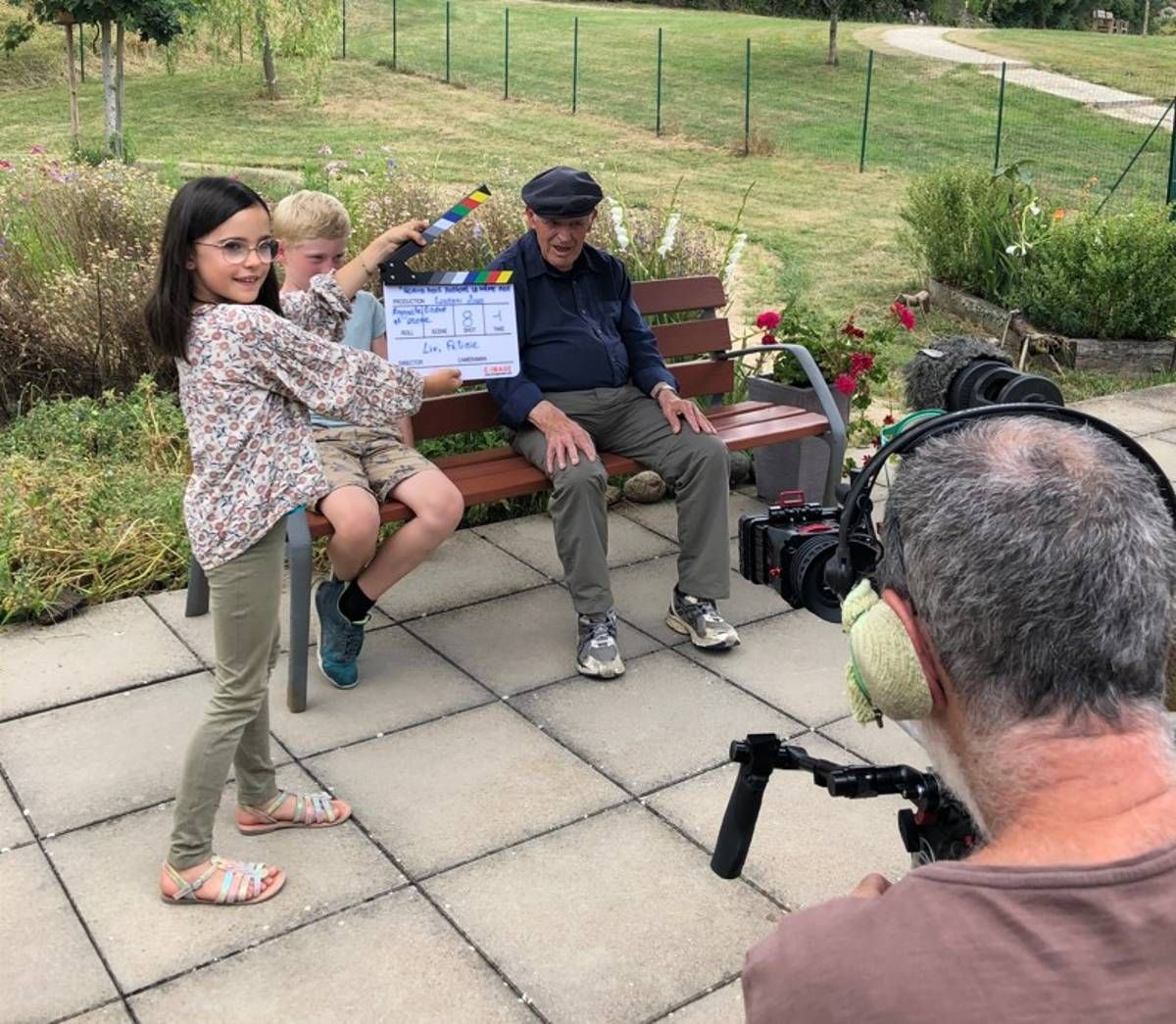 The children were also able to direct the film in their own way.
The children were also able to direct the film in their own way.
Writing workshops accompanied the screening in Saint-Julien-Chapteuil. Because Frédérique Hespel is a writer. Successful. To his credit, 12 novels, 10 of which are published in the “feel good” genre. We will cite Life is too short to be sad, On the road to happiness! or the last one, released in July, Back to the Cévennes. The latter traces the adventures of three women, Ilona, Cindy, and Lucienne, who weave their daily lives to the rhythm of the village and its picturesque inhabitants: the grumpy postman, the wife of the kleptomaniac mayor, the couple of vegetarian butchers, the centenarian with the language flowery and so many others… And then, there is Lucas, Serge and Sabrina… During this authentic and initiatory stay, the three women will heal their wounds together and open up to new horizons, too. unexpected than unexpected. Frédérique Hespel received the screenplay prize in Orléans and is currently adapting one of her novels for the big screen. The young woman has more than one string to her bow. She is divided between writing novels and screenplays, making documentary films, supporting authors and leading writing workshops.
A couple committed to their territory
At 22, she joined the production house Agat films et cie where she crossed paths with directors (actress, director and screenwriter Tonie Marshall (The Under-Gifted, Venus Beauty…) or even Jean-Jacques Zilbermann (Not everyone was lucky enough to have communist parents, Spelling mistakes…). “Alongside them, I learned the skills of production, direction, casting and direction.” She then rubbed shoulders with directors such as Pierre Jolivet (My small business) or even Pierre-François Martin-Laval, a notable figure in the troupe of Robin Hood, Teachers… She accompanies directors from the Appeal of Calais, led by Pascale Ferran, who make short documentary films to denounce the living conditions of migrants in “the jungle”. Today, Frédérique and Olivier are working with the Brioude ASE to produce a 30-minute film for the Department on the Hip-Hop workshop offered to ten young people placed in foster families. The film will be screened at the Halle aux grains in Brioude. The couple is also making a film about young people aged 14 to 18 from the IME of La Chaise-Dieu who participate in a collection workshop. “It’s the human that interests us.” 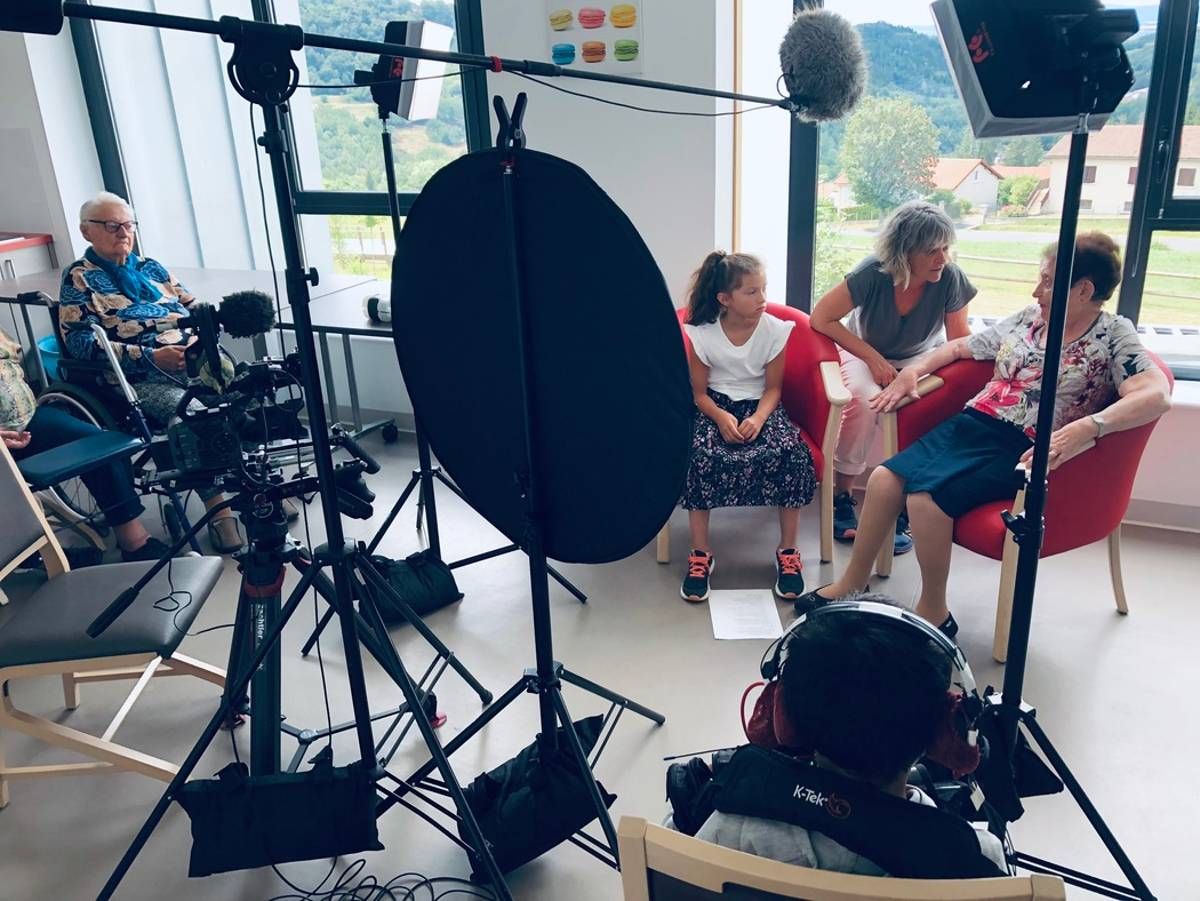 “When we would be the same age” a documentary by Frédérique and Olivier Hespel.
“When we would be the same age” a documentary by Frédérique and Olivier Hespel.
Nathalie Courtial

